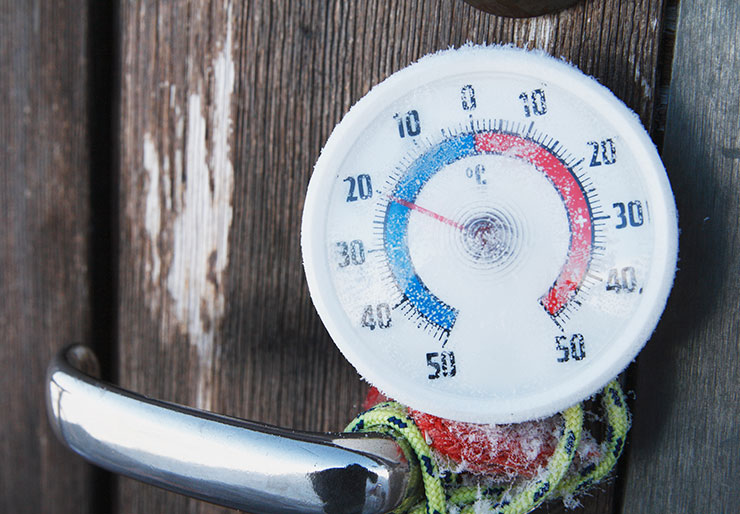

How to prepare for cold weather
In the worst cases, exposure to extreme cold or simply being cold for a long time can result in injury or death. Here are a few tips on how to brace yourself for cold weather before the mercury starts to fall.
Snow and low tempreatures
Large amounts of snow and unusually low temperatures may be a dangerous combination. Lots of snow may increase the danger of power cuts, caused by falling trees. Furthermore, locating damages and sorting them out, may be time consuming. Most homes use electricity as the main source for heating – many newly built houses and apartmentes have no alternative heating, like a wood burning fireplace. When the temperatures are low, a power cut may soon result in dark and cold conditions also inside. This may soon be critical to life and health, unless one has an alternative plan to keep warm.
Heating and food
For many people, electrical appliances are their only source of heating. Most people also rely on electricity for food preparation and hot water. If it’s extremely cold outside, you are even more vulnerable in a power cut. It’s a good idea to think about how you'll keep warm if there is a sudden power cut. There's no doubt that woollen clothing, duvets, blankets and sleeping bags are useful - and candles can help some, but you often need an additional source of heating as well.
Large amounts of snow may cause mobility problems. We recommend everyone to store extra drinking water, food and other necessities. It’s also a good idea to keep a small store of food that you don’t need electricity to prepare. If you have a back-up supply of water, you are also better prepared if your water pipes freeze.
Good ventilation is vital
Gas appliances, paraffin stoves and open fires consume the oxygen in the air, while emitting carbon dioxide and water vapour into a room. If it’s bitterly cold outside, it’s tempting not to ventilate, but allowing fresh air into a room is absolutely vital. If normal ventilation is not sufficient, open the window wide for a few moments, every now and then.
Also remember that many heaters (including gas heaters and other types) must only be used while you are in the room, and never while you are asleep.
Review your self-preparedness supplies
Extreme cold and large amounts of snow can create problems for infrastructure related to electricity, water, internet, mobile networks and roads. It can also lead to both the municipality and emergency services having many simultaneous tasks. That is why it is a good idea to review your self-preparedness supplies when large quantities of snow or prolonged cold periods are reported. Read more about self-preparedness for a week.
Sometimes we need help
Many people are not able to prepare adequately for extremely cold weather. Elderly people who live alone tend to be particularly vulnerable. Check whether any of your relatives or neighbours need some extra help. Do you need to stay with someone else during the coldest period of time – or are you able to offer a place to stay, for those in need? If anyone you know needs help in cold weather, contact your municipal service centre.
